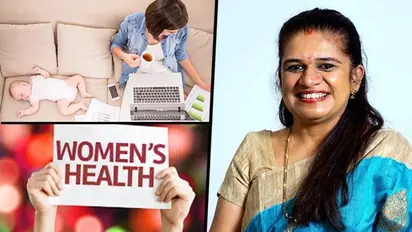International Women’s Day 2021: Women’s health is nation's wealth – access to universal healthcare

Synopsis
The International Women’s Day was marked by a unique resolve – shapath – a journey of 1,000 days to ensure that women across the country have access to universal healthcare, also aimed at meeting the sustainable development goals (SDGs).
Bengaluru: The International Women’s Day was marked by a unique resolve – shapath – a journey of 1,000 days to ensure that women across the country have access to universal healthcare, also aimed at meeting the sustainable development goals (SDGs). A joint initiative of India’s foremost healthcare leader Dr Hema Divakar under the aegis of ARTIST for Her and Integrated Health and Wellbeing (IHC) Council, shapath comes at a right time, as India needs to focus on all aspects of women’s healthcare from a comprehensive as well as future perspective.
“Often, we hear about women’s independence in society. According to us, it is more of inter-dependence. Both woman and man have an equal role to play, but it is the woman who embarks on the journey of giving life. Unless we ensure that a woman has access to universal healthcare, especially to prevent maternal deaths and take on the non-communicable diseases, we cannot claim that we have addressed all issues of women,” observed Dr Hema Divakar, CEO of ARTIST for Her and past president of FOGSI.
The initiative aims to undertake capacity building of doctors and healthcare workers on all aspects of women health through partnerships and collaboration of all stakeholders of the healthcare sector. “Our shapath is to cover the broad umbrella of women’s healthcare – from the womb to tomb approach, as every health issue faced by a woman is complex. We will be organising summits, conclaves, training sessions and sensitisation programmes over the next 1,000 days to ensure that SDGs are meaningfully achieved,” Dr Hema said.
According to her, several initiatives have been launched by the government and the private sector, but it is time to resolve that “We walk the talk. We have Beti Bachao campaign, but a girl is not even allowed to be born. There is an entire chain of issues that need to be addressed. It is equally important to make sure that healthcare is delivered with quality, safety, dignity and respect.”
Emphasising on International Women’s Day, Dr Hema observed that mutual trust and respect was the key to sustain relationships in the family, workplace and society, “It should not be a matter of tokenism on women’s day but at all times so that we celebrate "life" rather than celebrate a false sense of "power." With this attitude, Beti Bachao can become a non-issue in her journey through the ages.”
Awareness and reach through digital technology are critical if access to universal healthcare for women has to be successful. Implementing this through the health and wellness centres across the country is within reach if the focus is on capacity building on digital platforms, innovation and point of care technologies. Reaching every girl, every woman and ensuring that care before and beyond pregnancy is important. It is needless to say that Women’s Health is Nation's Wealth.